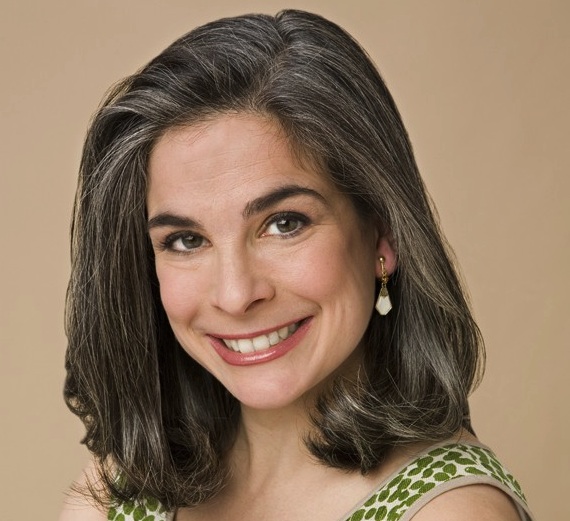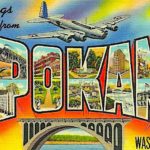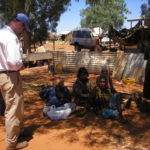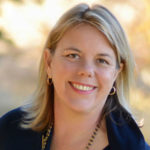Pauline Frommer is the creator of the Pauline Frommer Guidebooks, a new series for budget-conscious travelers. Pauline Frommer’s New York City and Pauline Frommer’s London were named Best Guidebook of the Year (in 2006 and 2007 respectively) by the North American Travel Journalists Association. In addition, she co-hosts The Travel Show heard on over radio stations nationwide; appears weekly on CNN.com to discuss travel; and authors a bi-weekly column on MSN.com.
How did you get started traveling?
My parents traveled to Europe every year to update my father’s book Europe on $5 a Day. When I was four-months-old they took me along on what was to be the first of many family research trips. This was back in the days before disposable diapers, so they joked about renaming the book Europe on 5 Diapers a Day.
How did you get started writing?
I started writing as a kid, keeping a diary, writing for the school paper and writing stories.
What do you consider your first “break” as a writer?
I’ve been very lucky in that my father allowed me to serve an apprenticeship of sorts. When I was just out of college, he needed help updating his book The New World of Travel which was about different forms of travel: women-only travel, travel with a political purpose, travel involving homestays, etc. I ended up doing so much original research and writing that he gave me a co-byline on the third edition.
As a traveler and fact/story gatherer, what is your biggest challenge on the road?
Scheduling. When you’re writing a guidebook, you often have to eat more than 3 meals a day to make sure you sample a wide range of restaurants. You have to visit every museum/attraction in town, and you have to do it fairly quickly because travel information has a short shelf-life. When I was working on the first edition of Pauline Frommer’s Las Vegas, I saw all of Vegas’ 82 long-running shows in the two months I was there; that was a huge headache to schedule (I also felt a bit like I was being brainwashed, but that’s another story altogether).
Second biggest challenge is knowing when to say “screw the schedule”. I often make my best discoveries while wandering aimlessly or noticing something off in the distance that looks promising. Time management therefore becomes a weird balancing act, as you teeter between periods when every minute is pre-planned and hours of free-form snooping.
What is your biggest challenge in the research and writing process?
Keeping the writing lively, specific and fresh when I’m on the 20th hotel review or the 30th restaurant recommendation. And that comes down to taking detailed notes and sometimes taking pictures (I photograph hotel rooms and some attractions on my cellphone and then narrate my first impressions into the phone); and avoiding patterns in my writing, both in word choice and grammatical structure.
What is your biggest challenge from a business standpoint?
Educating the guidebook-reading public about the differences between my series (the Pauline Frommer Guidebooks) and the regular Frommer guides.
In a nutshell, my books are for the under-served middle. I felt there were a lot of guidebooks on the market for backpackers and an equal number for the Ritz Carlton crowd, but very few for the vast majority of travelers who want to travel with a modicum of comfort and dignity but still do it on the cheap. So I created the Pauline Frommer guidebooks with the needs of the adult budget traveler in mind. My guides explore the topic of alternative accommodations far more deeply than any other guidebook series I know; they offer every trick in the book for saving money; and they encourage readers to get off the beaten path in very specific and active ways. Pick up Pauline Frommer’s Hawaii, for example, and you’ll find information about bars where you can try kava and listen to slack jar guitar sessions, as well as details on volunteer opportunities for vacationers who’d like to help scientists with the yearly whale count (among other items). In my Las Vegas book, I encourage readers to abandon the craps tables for a couple of hours so they can sit in on a magician’s karaoke night (they test out new tricks on whomever shows up), go to a philosophy circle in the Mandalay Bay casino (no joke), visit the government’s secretive atomic testing site, or have martinis with the mayor (a regular and wacky civic event). Pauline Frommer’s Paris details cooking classes in local’s apartments, a weekly rollerblading event which draws 5000 bladers each Friday who zoom through different parts of the city, and visits to the studios of local artists and artisans.
I could say more, but I’d better stop here. Suffice it to say, it’s a very different series and I’m trying to get the word out so that we find the right audience for the books.
Have you ever done other work to make ends meet?
Before I was a full-time writer and editor, I worked as an actor. I toured the country with Les Miserables, narrated a lot of books on tape, and did theater both in New York City and regionally.
What travel authors or books might you recommend and/or have influenced you?
Mark Twain, Isaak Dinesen, Edith Wharton, Rory Stewart, Claude Levi-Strauss, Pico Iyer, Jan Morris, Arthur Frommer, Reid Bramblett, Jason Cochran
But I suggest not restricting yourself to travel writing for inspiration. It’s important that travel writers read widely in all genres.
What advice and/or warnings would you give to someone who is trying to break into travel writing?
Diversify your skills. It’s very helpful to be a proficient photographer, as many publications will be more likely to buy your stories if they’re accompanied by photos. If you’re interested in editing, learn a bit about web design and writing for the web as that seems to be the way content is trending. If you’re going to be writing travel advice, don’t neglect your advance research. Too many travel writers think all they need to do is describe their experiences. That’s fine for some forms of travel writing, but if you’re reviewing, it’s important that you understand the history and current context of the topic you’re discussing.
Most importantly, develop and hone your writing skills. As someone who hires writers, I can’t tell you how difficult it can be to find folks with genuine voices, who know what the travel clichés are (and thus strive to avoid them) and can put together a pithy sentence.
What is the biggest reward of life as a travel writer?
There are many. On a purely selfish level, I love that it’s my job to try indoor sky diving, eat great meals, interrogate museum curators, test surfing schools and have all kinds of other adventures.
And when I’m awake at 3 a.m. wondering why I’m hundreds of miles away from my husband and young daughters, I think/hope that I’m helping people with my writing and editing. We live in a country where only 25% of the population has a passport. I think that’s a dangerous figure and that too much of the foreign policy of the Bush years was based on xenophobia. My hope is that the more people travel, the less they’ll fear the rest of the world. By writing about travel in a practical, history-rich and cost-conscious way, I’m hoping to give people the tools to travel independently, to better understand what they’re seeing and to broaden their world-views. And if I have any measure of success in doing that — and I have no idea whether I do — I think that has to be my greatest reward.





